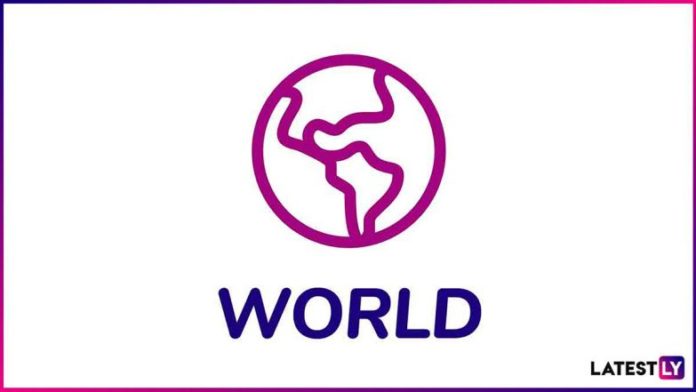[ad_1]
LONDON, Jan. 17 (AP) – The Scottish leader said Tuesday that she will take the British government to court over its decision to block a Scottish law that makes it easier for people to change their gender on official documents.
First Minister Nicola Sturgeon said it was a “serious mistake” that Britain’s Conservative government rejected the gender recognition reform bill passed by the Scottish Parliament last month.
“This will inevitably end up in court,” Sturgeon told the BBC. “The Scottish Government will vigorously defend this legislation.”
Hailed as a milestone by transgender rights campaigners, the bill will allow people aged 16 or over in Scotland to self-declare to change the gender designation on their identity document, eliminating the need for a medical diagnosis of gender dysphoria.
Read also | Nepal air crash: Authorities hand over bodies of victims to families as death toll rises to 71
It will also shorten the amount of time transgender people must live with a differently expressed gender before the change is legally recognized, from two years to three months for adults and six months for 16 and 17-year-olds.
The legislation differentiates Scotland from the rest of the UK where individuals require a medical diagnosis before they can transition for lawful purposes.
Scotland is part of the United Kingdom but, like Wales and Northern Ireland, has its own semi-self-government with broad powers in areas including healthcare.
The British government on Monday used a rare power to block the law on the grounds that it could undermine UK-wide equality legislation that guarantees women and girls access to single-sex spaces such as dressing rooms and shelters.
Opponents of the bill argued that gender self-identification could entitle predatory men to spaces designed for women, a claim dismissed by supporters of the legislation as alarmist.
Alister Jack, the UK government secretary responsible for Scotland, said the government was concerned about the “adverse impact” on “single-sex clubs, associations and schools and protections such as equal pay”.
He told lawmakers: “The bill also has risks because the UK has two different gender recognition systems and allows for more fraudulent or malicious applications, creating serious complications.”
A testy debate in the House of Commons on Tuesday proved just how bitter and divisive the issue can be. Conservative and SNP lawmakers jeered at each other, while opposition Labor lawmaker Rosie Duffield was heckled by party colleagues after praising the government’s actions.
The move brings the Conservative government into conflict with that led by Sturgeon’s Scottish National Party, which wants Scotland to separate from Britain and become an independent country.
SNP lawmaker Joanna Cherry tweeted that she opposed the bill “because it lacks adequate safeguards to protect the rights of women, girls and #LGB people. However, the problem was made in Scotland and should be fixed in Scotland.” “
It is the first time a British government has blocked a Scottish law since the Scottish government and parliament were established as part of the devolution process a quarter of a century ago. Sturgeon said the move was the start of a “very slippery slope of the UK government’s decision to overrule the Scottish Parliament at any time”.
“The UK government wants to sabotage the Scottish Parliament and pick an issue that they think can spark some kind of culture war, and that’s what it’s about,” she said. “In doing so, they are undermining devolution, they are undermining democracy in Scotland, but they are also weaponizing a stigmatized, vulnerable and often marginalized segment of our society.”
Jack denies the decision sets a precedent. The veto, he said, “can only be exercised on specific grounds, and the fact that this is the first time in nearly 25 years of devolution that it has been necessary underscores that it is not a power to be wielded lightly.”
Several countries around the world have legalized gender self-recognition, including Argentina, Canada, New Zealand, Denmark and Iceland. Last month, Spain’s parliament approved a bill similar to Scotland’s. (Associated Press)
(This is an unedited and auto-generated story from a Syndicated News feed, the content body may not have been modified or edited by LatestLY staff)
[ad_2]
Source link



